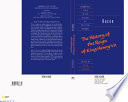 But in this she found him of himself so nimble and shifting, as she trusted much to his own wit and readiness ; and therefore laboured the less in it. Lastly, she raised his thoughts with some present rewards, and further promises ; setting before him... But in this she found him of himself so nimble and shifting, as she trusted much to his own wit and readiness ; and therefore laboured the less in it. Lastly, she raised his thoughts with some present rewards, and further promises ; setting before him...  The works of Francis Bacon - Page 92by Francis Bacon (visct. St. Albans.) - 1819Full view The works of Francis Bacon - Page 92by Francis Bacon (visct. St. Albans.) - 1819Full view - About this book
 | Richard Garnett - English literature - 1903 - 466 pages
...which would in our day be thought below the dignity of history : She began to cast within herself for what coast this blazing star should first appear, and at what time. Upon the first grain of incense that was sacrificed upon the altar of peace at Bulloigne, Perkin was... | |
 | Richard Garnett - English literature - 1903 - 468 pages
...which would in our day be thought below the dignity of history : She began to cast within herself for what coast this blazing star should first appear, and at what time. Upon the first grain of incense that was sacrificed upon the altar of peace at Bulloigne, Perkin was... | |
 | Francis Bacon - History - 1998 - 340 pages
...10 Secret meetings Behave in a stately manner. Few people could correct him in. rewards and further promises, setting before him chiefly the glory and...to cast* with herself from what coast this blazing star13 should first appear, and at what time. It must be upon the horizon of Ireland; for there had... | |
 | Francis Bacon - 1844 - 586 pages
...therefore laboured the less in it. Lastly, she raised his thoughts with some present rewards, and further promises ; setting before him chiefly the glory and...must be upon the horizon of Ireland ; for there had been the like meteor strong influence before. The time of the apparation to be when the king should... | |
 | Agnes Ethel Conway, Edmund Curtis - England - 1932 - 306 pages
...which this was done. Bacon, in enlarging Vergil's statement, makes the plot begin with Margaret, who "cast with herself from what coast this blazing star should first appear ", and naturally enough chose Ireland. The payment of £18 by James IV, in February 1490, to a herald that... | |
| |